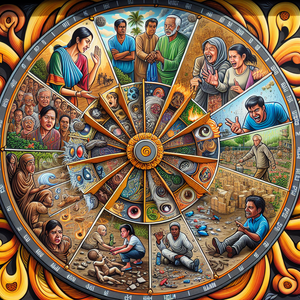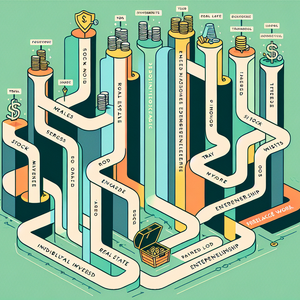Exploring the Future of Sleep Technology: The Oura Ring Case Study

Historically, sleep tracking was limited to clinical settings, often requiring cumbersome equipment and extensive monitoring. Sleep studies conducted in labs were the gold standard for understanding sleep issues, but they were inaccessible to many individuals. However, with the advent of consumer-grade wearables, sleep technology has become accessible to the masses. Devices like the Oura Ring have shifted the paradigm, allowing users to gain insights into their sleep patterns without the need for a sleep lab.
How the Oura Ring Works
The Oura Ring employs advanced sensors to monitor various physiological parameters, including heart rate, body temperature, and movement. This data is then analyzed to provide users with insights into their sleep quality. For instance, the ring can distinguish between light, deep, and REM sleep stages, offering users a detailed breakdown of their nightly rest.
Innovations on the Horizon
As we look to the future, sleep technology is poised for further advancements. The integration of artificial intelligence (AI) and machine learning could enhance the accuracy of sleep predictions and recommendations. Imagine a future where your Oura Ring not only tracks your sleep but also learns your habits and offers personalized advice to improve your sleep quality continuously.
The Impact of Sleep Technology on Health
The implications of enhanced sleep technology are profound. Improved sleep tracking can lead to better health outcomes, as quality sleep is linked to numerous aspects of physical and mental health. For instance, research has shown that adequate sleep can improve cognitive function, reduce stress levels, and enhance athletic performance.
The Oura Ring represents a significant step forward in the realm of sleep technology, providing users with the tools to understand and optimize their sleep patterns. As technology continues to advance, we can expect even more innovative solutions that enhance our understanding of sleep and its impact on our health.
Sleep Data Analyst
Oura, Fitbit, WHOOP
Core Responsibilities
Analyze sleep pattern data collected from wearable devices to derive actionable insights for product improvement.
Collaborate with product development teams to enhance algorithms for sleep quality and recovery tracking.
Conduct studies on user behavior to recommend data-driven features for future iterations of sleep technology.
Required Skills
Proficiency in statistical analysis tools (e.g., R, Python, SQL).
Experience with data visualization software (e.g., Tableau, Power BI).
Strong understanding of sleep science and metrics.
Wearable Technology Product Manager
Apple, Samsung, Oura
Core Responsibilities
Lead the product lifecycle for wearable sleep technology, from ideation to market launch.
Conduct market research to identify user needs and emerging trends in sleep technology.
Collaborate with cross-functional teams, including engineering, design, and marketing, to define product specifications and features.
Required Skills
Strong project management skills with experience in agile methodologies.
Understanding of hardware and software integration in wearable devices.
Background in health tech or consumer electronics preferred.
Biomedical Engineer - Sleep Technology Specialization
Oura, Philips Healthcare
Core Responsibilities
Design and develop wearable devices aimed at monitoring sleep-related physiological parameters.
Conduct feasibility studies and prototype testing to ensure accuracy and user comfort.
Collaborate with researchers to translate findings from sleep studies into practical applications.
Required Skills
Bachelor's or Master's degree in Biomedical Engineering or related field.
Experience with sensor technology and signal processing.
Knowledge of regulatory standards for medical devices.
Sleep Research Scientist
Oura
Core Responsibilities
Conduct clinical trials and studies to explore the effects of sleep technology on health outcomes.
Analyze data from sleep studies to publish findings in scientific journals.
Collaborate with tech companies to develop innovative solutions based on research insights.
Required Skills
Ph.D. in Psychology, Neuroscience, or a related field with a focus on sleep research.
Strong analytical skills and experience with research methodologies.
Excellent communication skills to convey complex findings to non-scientific audiences.
User Experience (UX) Designer for Health Tech
Oura, Fitbit
Core Responsibilities
Design user-friendly interfaces for sleep tracking applications, ensuring a seamless experience for users.
Conduct user research to gather feedback and understand user needs and pain points.
Collaborate with developers to implement design solutions that enhance user engagement and satisfaction.
Required Skills
Proficiency in UX design tools (e.g., Sketch, Figma, Adobe XD).
Experience in conducting usability testing and user interviews.
Familiarity with health-related applications and wearables is a plus.


